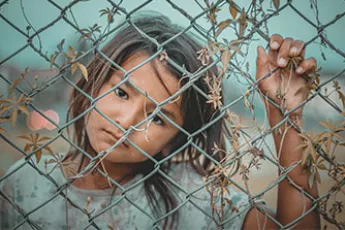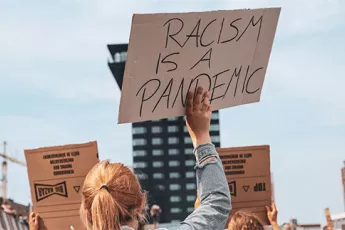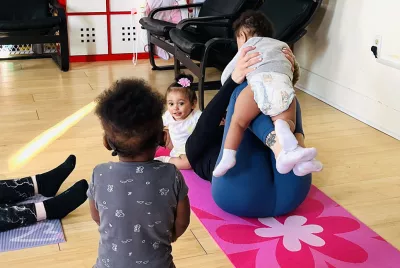Gaps in Foster Care Lead to Youth Homelessness
When young people age out of foster care and other child welfare services, they become susceptible to homelessness, human trafficking, and other threats to their well-being.

We Help Young People Facing Homelessness When Foster Care Can't
In the U.S. and Canada, 27% of the youth who come to Covenant House have had involvement with foster care. Our trauma-informed, strengths-based approach to our residential programs and support services meet youth where systems have either left off or failed to meet their needs.

When Young People Age Out of the Foster Care System
Young people typically age out of the system at 18 or 21 years of age, a time when they are often ill-equipped to navigate a successful path to a self-sufficient and independent adulthood.
This is precisely when young people become most vulnerable to homelessness, human trafficking, and a host of other threats and obstacles to their well-being and future happiness.
Children and youth enter foster care or child welfare systems when there is a problem of violence, abuse, neglect, or crisis in their home of origin. While a healthy foster placement might help a child come to terms with such hardships, a poor placement or an untimely aging out of the system without achieving permanence carries lifelong consequences, leaving young people at increased risk of poor educational outcomes, homelessness, unemployment, early parenthood, and substance use.
Child Welfare Services by Region
The challenges young people face when aging out of the foster care system vary greatly by region.

“A young man leaving foster care arrived on his 18th birthday, and all he requested was a fast-food meal. He was very surprised, and smiled ear to ear, when he received not only the meal but cake and ice cream too.”
— Deneen, CHNO Team MemberHow Does Covenant House Support Youth Who Age Out of Foster Care?
Safety
Youth who exit foster care and come to Covenant House are immediately provided with the unconditional love, absolute respect, and vital services they deserve and need to thrive.
Advocacy
Covenant House supports policy change to remove barriers to advancement for young people in foster care, including college enrollment, affordability, and completion.
Training
Covenant House staff are trained to understand the unique challenges faced by young people aging out of the foster care system.
News and Insights
All news & insightsKnow the Issues That Drive Youth Homelessness
Young people experiencing homelessness face numerous challenges that hinder their ability to become independent, successful, and fulfilled adults.

Human Trafficking
Traffickers use violence, threats, deception and other manipulative tactics to trap millions of people worldwide. Children and youth experiencing homelessness are a prime target of this criminal industry.

Income Inequality/Poverty
Children raised in poverty face a higher risk of homelessness. Without equitable resources, they can get swept up in a vicious cycle of hardship and significant social disadvantages.

Gaps in Foster Care
When young people age out of foster care and other child welfare services, they become susceptible to homelessness, human trafficking, and other threats to their well-being.

Lack of Affordable Housing
Affordable housing is in short supply across the cities and countries where we serve young people facing homelessness. A low supply of housing pushes more young people to live in unsafe places, couch surf, or rely on those who would take advantage of them in exchange for a place to sleep.

Mental and Emotional Health
Youth experiencing homelessness face mental and emotional health challenges from their time unhoused. Each year, thousands of youth experiencing homelessness die on the streets due to illness, assault, or suicide.

Racial Discrimination
Racial discrimination is a pipeline to youth homelessness. People of color experience homelessness at higher rates, largely due to long-standing structural racism that impacts education, housing, and other inequities.
Help Youth Facing Gaps in Foster Care
Your support will provide shelter and services to young people experiencing homelessness who have aged out of the foster care system.


